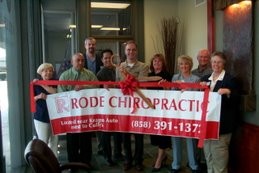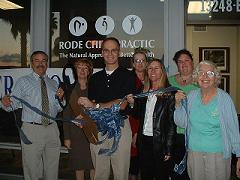Your body is a great machine. The different parts of your body move much the same is a well-oiled machine does with precision and all in perfect alignment. When part of a machine breaks down the other parts become misaligned and therefore your well-oiled machine does not function properly. This too is how your body works.
When initially seeing a chiropractor you will be asked questions and examined for any problems that you are experiencing. Most likely x-rays and lab tests will be conducted.
A chiropractorís role is to align the body to prior functioning capabilities and once he or she has done so, the rest of the body will be back in good order. By means of manipulation, adjustments, and realignment, a chiropractorís job is to put everything back into place. With his or her hands a chiropractor uses force over your joints, thereby moving the defective part beyond its normal capabilities.
When doing this a cracking sound may be audible. A chiropractor will sometimes massage and stretch the area that is affected and this will result in muscle relaxation relieving muscle spasms. In addition to manipulation, adjustments, and/or any realignment a chiropractor will sometimes use heat, cold, water therapy, exercise, ultrasound, or physical therapy to help with the problem. Electrical stimulation may also be a form of treatment. Some chiropractors use braces or straps for spinal difficulties. Some specialize in a specific field of chiropractic practice such as sports.
Although chiropractic care is considered an alternative form of treatment in dealing with muscle, nervous, and skeletal system discomfort you should always talk to your primary care physician first and seek his or her advice prior to visiting a chiropractor. In certain circumstances a chiropractorís services are not advocated. Your primary care physician will best be able to advise you in this decision and whether chiropractic treatment would be helpful to you.




